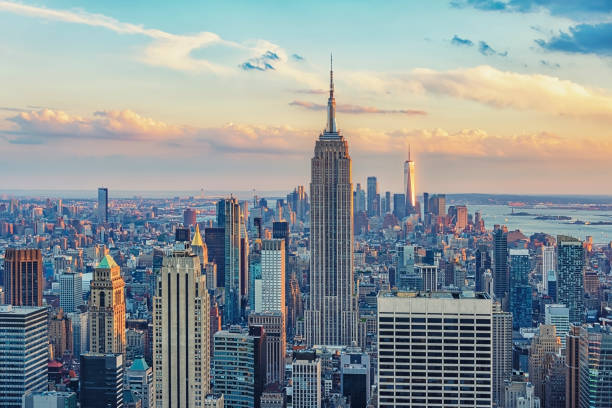Manhattan’s third casino bid fails
Manhattan’s bid for a new casino has suffered another setback, as Freedom Plaza became the third proposed project in the borough to be rejected in under a week. The project, proposed by Soloviev Group and Mohegan Gaming, was voted down 4-2 by its appointed Community Advisory Committee (CAC) on Monday morning, falling two votes short of the two-thirds majority required to advance. The rejection effectively halts the project before it can move to the next stage of state review, ending months of planning, public hearings, and community engagement.
The swift decision, which took less than ten minutes, effectively removes Freedom Plaza from contention for one of New York State’s three planned downstate casino licences. At an estimated $11 billion, it was the largest of the eight downstate proposals in terms of scale and ambition, drawing attention for its potential economic impact, job creation, and urban development opportunities. The planned development, located along 1st Avenue near the United Nations headquarters, included a casino, two hotel towers, two residential towers, and a so-called Museum of Democracy, a proposed cultural component intended to serve both tourists and residents.
The Voting and Developments
The final vote split was as follows:
- Nichols Silbersack – Yes
- Sandra McKee, chair – No
- Reshma Patel – No
- Celeste Royo – No
- Jennifer Sta. Ines – Yes
- Jasmine Narula – No
With Freedom Plaza’s rejection, only five of the eight original downstate proposals remain under consideration. Local CAC approval is required for projects to proceed to the state Gaming Facility Location Board for final licensing, meaning that each committee’s vote carries substantial influence over the fate of these multibillion-dollar proposals. The remaining five proposals are expected to face committee votes by the end of the month, with developers preparing detailed presentations and community engagement plans to sway votes.
A Pattern of Rejection in Manhattan
Like its predecessors, Freedom Plaza faced a series of last-minute amendments from its bidders. The final submission, filed September 21, proposed a significant concession: 100% of the site’s 1,080 residential units would be designated as affordable housing. If approved, this would have represented the largest affordable housing commitment among the downstate casino applicants to date, potentially reshaping local housing dynamics. Despite this substantial offer, the CAC did not accept the amendments, underscoring the rigorous standards and priorities guiding the committees. To date, no proposed amendments from any bidder have been approved, indicating that last-minute concessions may not be enough to sway committee decisions.
Unlike Avenir’s rejection, which elicited a public rebuke from SL Green CEO Marc Holliday, Freedom Plaza’s decision drew only subdued reactions. Crain’s reporter Nick Garber noted on social media that the room saw “applause and some (happy) tears” but no confrontations from the developers, reflecting a more restrained response from project backers. Committee chair Sandra McKee acknowledged the community’s involvement in the process, stating, “It’s been a very robust review of all the work that’s been done by the community and the applicants. I vote nay.” Her remarks emphasized the committee’s role in weighing extensive planning against community priorities, even for projects with significant economic promise.
Freedom Plaza becomes the third Manhattan casino bid rejected in under a week, highlighting the decisive role of local advisory committees in shaping New York’s casino landscape.
The Future
The remaining proposals still in the New York casino race include:
- Resorts World NYC, Queens
- MGM Empire City, Yonkers
- Bally’s Bronx, Bronx
- The Coney, Brooklyn
- Metropolitan Park, Queens
MGM Empire City and Resorts World NYC are scheduled for committee votes on Thursday, at 10 a.m. and 3 p.m., respectively. These upcoming votes will likely attract close scrutiny from both developers and local stakeholders, as the outcomes will determine which projects advance to state review and remain in contention for the final casino licences. Manhattan’s early setbacks highlight the challenges facing large-scale casino developments in the borough, where local advisory committees have so far rejected all three proposals despite years of planning, extensive community consultations, and substantial financial investment. The outcomes suggest that community priorities, urban planning considerations, and local oversight will continue to play a decisive role in shaping the state’s emerging casino landscape.









